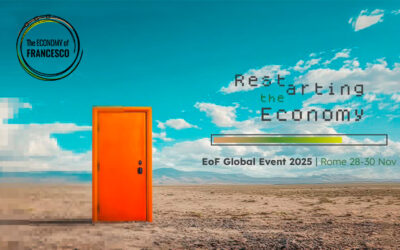The Department of Political, Social and Communication Sciences of the University of Salerno and the Social-One research network, under the auspices of the Sociological Theories and Social Transformations Section of the Italian Association of Sociology (AIS) and in partnership with 11 universities and research institutes in Italy and worldwide, promote the conference “Sociological Imagination and Social Promotion: the category of “agapic action” to interpret the changes and to imagine new futures”. The aim of the conference is to investigate all the perspectives of analysis and action which have been raised by the members of the agapic action in the context of human and social disciplines with the hypothesis that the concept may offer new interpretations and perspectives of interventions for the promotion of a pluralistic society based on equality, inclusiveness and particularly dialogue. The conference focuses on four areas, which will be analyzed both from the scientific and academic point of view within the panels, and from the point of view of action-intervention, through the collection of best practices, which will be exhibited within of the Social Expo. The areas are: 1) Protagonist communities, sharing cultures and grassroots movements 2) Cooperation and dialogue in the field of macro-social actions 3) Relationships, inclusion and well-being in social policies 4) Plurality, dialogue and identity processes Official languages in plenary sessions: Italian, English, Spanish. The Scientific Committee of the international conference is coordinated by Gennaro Iorio (University of Salerno) and composed by:
- CALLEBAUT BERNHARD – Istituto Universitario Sophia (Italy)
- CAMPANINI ANNA MARIA – Università di Milano Bicocca (Italy)
- HOCHSCHILD MICHAEL – Time-lab (France)
- MAGATTI MAURO – Università Cattolica del Sacro Cuore di Milano (Italy)
- MARTINS PAULO HENRIQUE – Universidade Federal de Pernambuco – UFPE (Brazil)
- MONGELLI ANGELA – Università di Bari (Italy)
- MORA EMANUELA – Università Cattolica del Sacro Cuore di Milano (Italy)
- ORTEGA SANTO PEDRO JOSE – Universidade Autónoma de Santo Domingo – UASD (Dominican Republic)
- RAMA RUDINA – University of Tirana (Albania)
- REMBIERZ MAREK – University of Silesia in Katowice (Poland)
- SALAS MARCELO – Universidad del Salvador en Buenos Aires (Argentina)
- WAGNER IZABELA – University of Warsaw (Poland)
- WIELECKI KRZYSZTOF – Cardinal Stefan Wyszynski University (Poland)
For information: Social-One online Download invitation




0 Comments